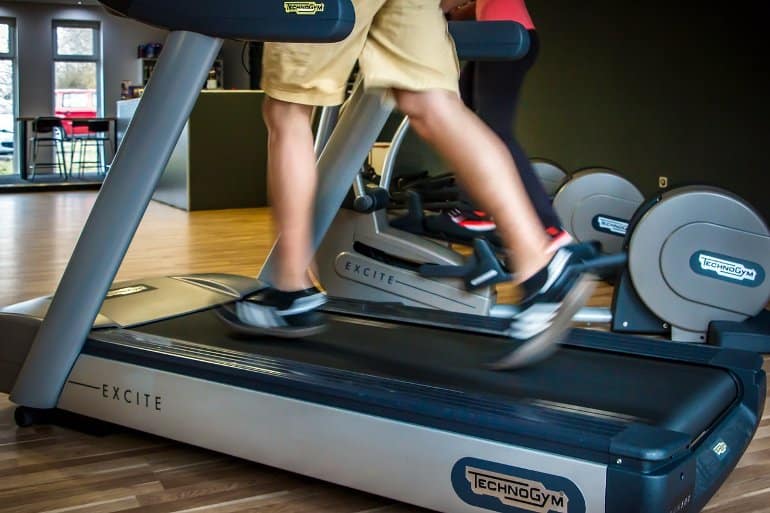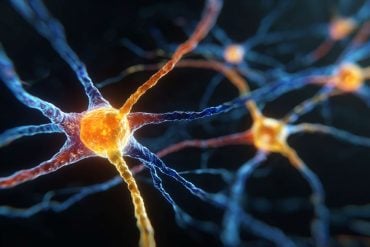Summary: Walking exercise on a treadmill improves cognitive abilities, including learning and memory, and preserves hippocampal volume in people with relapse-remitting multiple sclerosis.
Source: Kessler Foundation
A pilot study by a team of multiple sclerosis (MS) researchers showed that treadmill walking exercise training may be an effective approach to managing the debilitating cognitive effects of the disease.
Their article, titled, “Effects of walking exercise training on learning and memory and hippocampal neuroimaging outcomes in MS: A targeted, piloted randomized controlled trial,” was published in Contemporary Clinical Trials.
Participants in the single-blind randomized control trial included 11 ambulatory individuals with relapsing-remitting MS and demonstrated MS-related impairments in new learning.
They were randomized to either 12-weeks of supervised treadmill walking exercise (intervention group), or 12 weeks of low-intensity resistive exercise (control group). All participants underwent neuropsychological tests of learning and memory and hippocampal neuroimaging before and after their 12-weeks of exercise.
Researchers saw improvements in verbal learning and memory in the intervention group, and preservation of hippocampal volume. Non-significant effects were found on functional connectivity.

These results provide initial proof-of-concept data for the use of treadmill training for walking exercise as a possible behavioral approach for managing the deleterious effects of MS on learning and memory.
The participants had preexisting impairments in learning and memory, an important factor in the study’s design, according to lead author Brian Sandroff, PhD, senior research scientist in the Center for Neuropsychology and Neuroscience Research at Kessler Foundation.
“This study is an important first step in the development of an intervention targeted at the specific cognitive domains affected by MS,” said Dr. Sandroff.
“Exercise interventions should be a focus for MS research,” added co-author John DeLuca, PhD, Senior Vice President for Research and Training at Kessler Foundation.
“Showing efficacy for low-cost, noninvasive, widely available interventions will help us manage the effects of MS, supporting individuals striving to maintain their participation at home, at work, and in their communities. To pursue our findings, larger scale studies are needed to explore the relationships between exercise training and functional and structural changes in the brain, and the optimal protocols for clinical implementation.”
Funding: EMB Serono investigator-initiated grant.
About this multiple sclerosis research news
Author: Deb Hauss
Source: Kessler Foundation
Contact: Deb Hauss – Kessler Foundation
Image: The image is in the public domain
Original Research: Closed access.
“Effects of walking exercise training on learning and memory and hippocampal neuroimaging outcomes in MS: A targeted, pilot randomized controlled trial” by Brian Sandroff et al. Contemporary Clinical Trials
Abstract
Effects of walking exercise training on learning and memory and hippocampal neuroimaging outcomes in MS: A targeted, pilot randomized controlled trial
Purpose
The current pilot study involved a single-blind, randomized controlled trial (RCT) on the effects of treadmill walking exercise training compared with an active control condition on learning and memory (L/M) and hippocampal neuroimaging outcomes in 11 fully-ambulatory persons with multiple sclerosis (MS) who demonstrated impairments in new learning.
Methods
The study protocol is registered at clinicaltrials.gov: NCT03319771 (February 2018). Eleven fully-ambulatory persons with MS-related impairments in new learning were randomly assigned into either 12-weeks of supervised, treadmill walking exercise training or 12-weeks of low-intensity resistive exercise (active control condition). Participants underwent neuropsychological tests of L/M and hippocampal neuroimaging before and after the 12-week study period; outcomes were administered by treatment-blinded assessors.
Results
There were moderate-to-large intervention effects on measures of verbal L/M (ηp2 = 0.11, d = 0.63, 95% CI: −0.61, 1.83), whereby those in the intervention condition demonstrated improvement in California Verbal Learning Test-II (CVLT-II) scores compared with the control condition. There were smaller effects on a composite L/M measure (ηp2 = 0.02, d = 0.28, 95% CI: −0.93, 1.46). There were large intervention effects on normalized hippocampal volume (ηp2 = 0.36, d = 1.13, 95% CI: 0.09, 2.82), whereby hippocampal volume was preserved in the intervention condition, compared with hippocampal atrophy in the control condition. By comparison, there were no intervention effects on hippocampal resting-state functional connectivity.
Conclusions
Collectively, this study provides initial proof-of-concept data for further examining treadmill walking exercise training as a possible behavioral approach for managing L/M impairment and preserving hippocampal volume as common and debilitating manifestations of MS.






